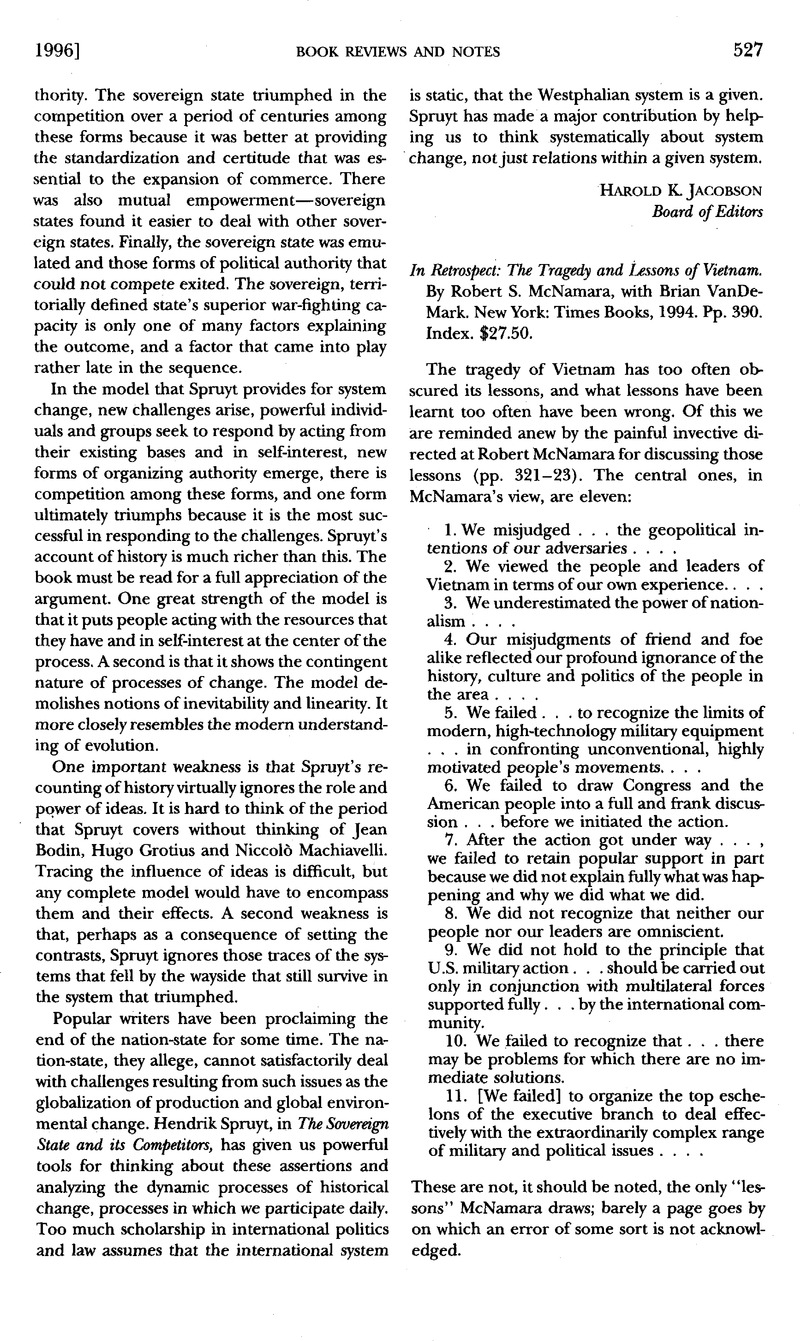No CrossRef data available.
Article contents
In Retrospect: The Tragedy and Lessons of Vietnam. By Robert S. McNamara, with Brian VanDeMark. New York: Times Books, 1994. Pp. 390. Index. $27.50.
Published online by Cambridge University Press: 27 February 2017
Abstract

- Type
- Book Reviews and Notes
- Information
- Copyright
- Copyright © American Society of International Law 1996
References
1 See, e.g., Louis Henkin, How Nations Behave: Law and Foreign Policy (1979).
2 See Irving L. Janis, Groupthink: Psychological Studies of Policy Decisions and Fiascoes (2d rev. ed. 1982).
3 J. Norvill Jones, Robert McNamara’s Bad Information, Wash. Post, Nov. 23, 1995, at A22 (final ed.).
4 When in 1995 McNamara reportedly asked General Vo Nguyen Giap, the chief strategist behind the North Vietnamese war effort, what really happened in the Tonkin Gulf on the night of August 4, 1964, Giap replied, “Absolutely nothing.” McNamara seemed satisfied with the answer. “It’s a pretty damned good source.” McNamara Meets Former Foe, Wash. Post, Nov. 10, 1995, at A36 (final ed.).
5 As Frances FitzGerald has written, the United States “reduce [d] its majestic concerns for the containment of communism and the security of the Free World to a dimension where governments rose and fell as a result of arguments between two colonels’ wives.” Frances Fitzgerald, Fire in the Lake (1972).
6 Clinton Feels He’s Vindicated on Vietnam by McNamara Book, N.Y. Times, Apr. 15, 1995, §1, at 7.


